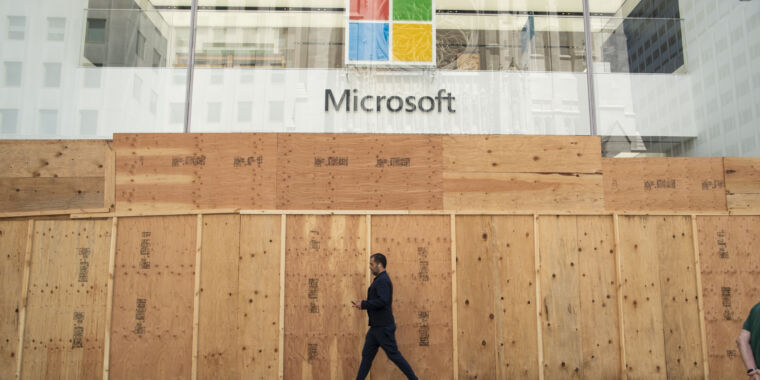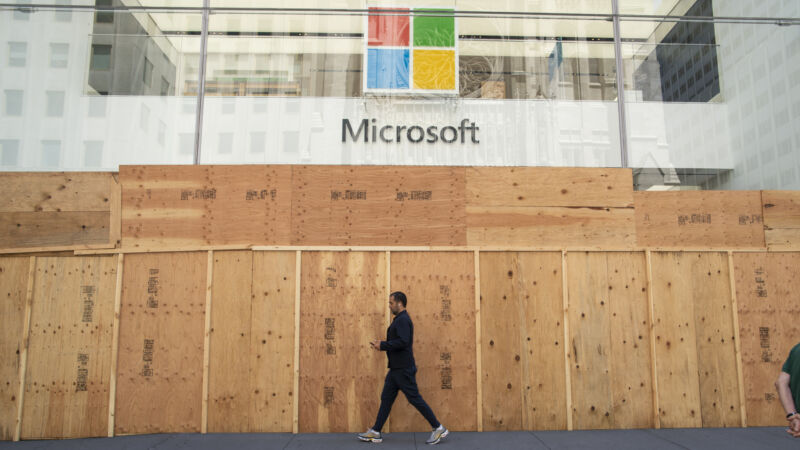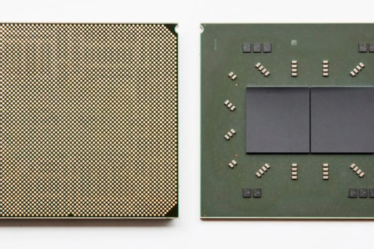

Microsoft’s retail stores, like many retailers throughout the nation, have been closed for months due to the novel coronavirus pandemic. If you were hoping to visit one again as restrictions in your state ease up, however, you’re out of luck: the Microsoft Store is done for good.
The company announced the closure today, amusingly, as the Microsoft Store taking « a new approach to retail, » by which it means « not actually operating retail stores. » Although four locations—in London, New York City, Sydney, and Microsoft’s Redmond, Washington, campus—will remain open, they will become « experience centers, » where one can see, touch, and play with Microsoft products but not actually purchase any.
Microsoft naturally hailed the « strategic change » as a win, saying that online sales have grown and the product portfolio « has evolved to largely digital offerings, » which, 2020 being what it is, is no doubt true. But Microsoft’s stores, which began opening in 2009, were never able to escape the comparison to rival Apple’s retail stores.
That held particularly true in Tyson’s Corner, Virginia, where the first Apple Store opened in 2001. Microsoft opened a store in the same mall eight years later, in 2009, and the comparisons were unavoidable. Brad Smith, who was then a Microsoft vice president and is now the company president, said at the time that the comparisons were simply « the nature of retail, » adding, « you go to Saks and you’re going to see some similarities to Nordstrom. »
I, too, have passed by the Tyson’s Corner location regularly in the past decade. It’s down the hall from the Apple Store, situated snugly between a Banana Republic and a Tesla showroom. But while the Apple Store always seems to be teeming with crowds, both the cars and the crisp button-downs on either side always seemed to elicit more joy than the showroom full of Surface tablets. Aside from some kids playing on the demo Xbox units, the Microsoft Store rarely seemed to attract a crowd.


